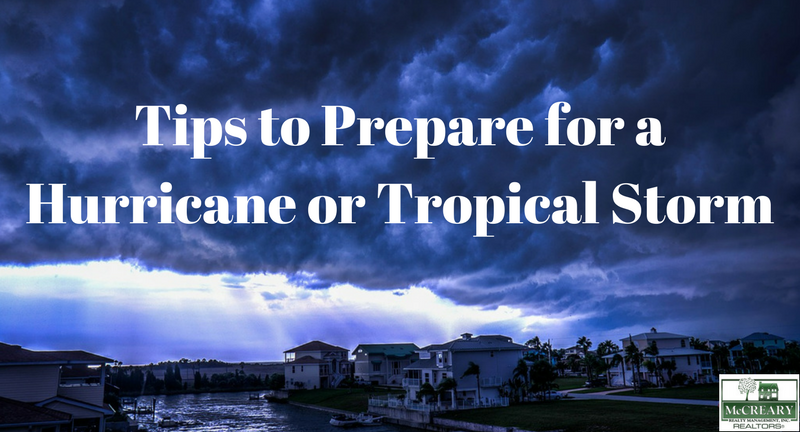
A timely topic for the season is the threat of hurricane(s) in the coastal areas and severe tropical storms further inland. We are witnessing the impact of these weather events on television and in social media at this very moment.
The primary focus during any weather event must be the safety of you and your family. It's important to learn about guidelines to help you and your family stay safe in the event of an emergency.
Here are some helpful tips to prepare for a hurricane or tropical storm:
Information
It is important to have information about what is happening and the potential risks you may be facing. Certainly, the national media covers the threat of hurricanes very thoroughly, but also keep in mind local sources (and resources) for information and guidance.
As you prepare for a hurricane or tropical storm, gather contact information for these groups:
- Local Emergency Management
- Local Law Enforcement
- Local Fire and Rescue
- Local Hospitals
- Relief Organizations like the American Red Cross and Salvation Army
- Your property insurance carrier and agent
Plan
Unfortunately, weather doesn’t plan around your family's day-to-day schedule. Be sure to have a "Family Emergency Plan" in place for the types of situations where your family will have to gather and when and where they should go. This includes preparing for multiple locations (like relative’s and possibly even extended relatives' homes) that meet the needs of the specific emergency.
Luckily, communication is not a big problem today with everyone having a smart phone. However, a periodic review of the plan in a family meeting is a good idea. (Hint: Make sure your emergency supplies include a device to charge mobile phones.)
And finally, don’t forget your pets while you're planning. Be sure to have supplies for them or have a plan to leave them in a safe shelter for the duration of the emergency.
Supplies
Plan for and gather emergency supplies and keep those supplies in a secure location with easy access. Remember that there is the potential for the loss of power and utilities.
Preparing for the storm
Residents of storm-prone areas know the procedures involved in preparing their homes for major storms. The basics include covering windows to protect them from flying debris; removing outdoor items which may become flying debris; and preparing for extended periods of time without power, water, and/or other utilities.
A power generator will supply reduced power to your home while the electricity is out. Keep a generator outside, and remember to check it periodically for safe and proper operation. You’ll need to keep fuel for running it, too.
Hint: Portable HAM or CB radios may come in handy if even digital phone services are interrupted. Investing in a digital antenna for your television is also something to consider. With an antenna, you'll be able to continue receiving broadcasts from local news stations as long as you have power or a generator.
Evacuation
Often, officials deem approaching storms to be too dangerous for residents to attempt to ‘ride it out.’ Certainly, there will be "old timers" who have seen it all. We almost always hear about people who stayed for severe hurricanes but who afterward confessed they would never do it again.
The issue is that once the storm starts, there is no escaping, and these storms can be very dangerous. If state and local authorities have issued voluntary evacuation plans in advance of a severe storm, you should consider that the best time to escape. Once mandatory evacuations are ordered, it’s everyone for themselves, mostly. DO NOT take evacuation orders lightly.
Recovery
If you’ve had to evacuate, you’ll want to return home as quickly as you can once the storm is over. Consult the media and local resources to make sure it’s safe to do so. If you return on your own, you may find that local authorities are not allowing residents access due to unsafe conditions. Recovery from destructive storms may take a while and should be considered a complex process. The local authorities’ first responsibility is safety.
Dangerous storms present many challenges to each of us -- and to all of us collectively. Remember that you’re not alone, and there may be vulnerable people in your area that need help after a particularly devastating weather event. It’s a great time to be a good neighbor.
Related Resources
National Hurricane Center Hurricane Preparedness - Be Ready
National Weather Service Safety
Ready.gov Kids

